As someone who doesn't believe in a higher being or meaning to life, I don't believe there to be some special moral code for all to abide by. Morals vary from culture to culture. I was wondering how all you perceive morals: is there a definitive right and wrong? Why?
Subscription Note:
Choosing to subscribe to this topic will automatically register you for email notifications for comments and updates on this thread.
Email notifications will be sent out daily by default unless specified otherwise on your account which you can edit by going to your userpage here and clicking on the subscriptions tab.




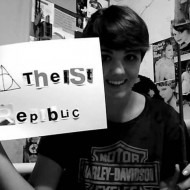

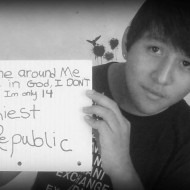

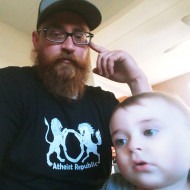
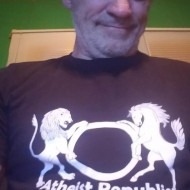














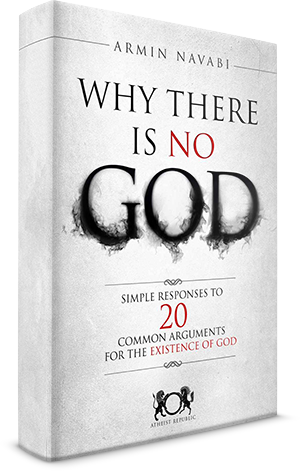
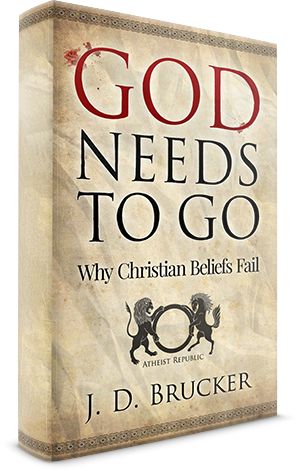



I believe we've decided over time what is right and wrong in a civilized society, and clearly it has evolved, a good example is a mere sixty years ago in the United States women were basically treated as baby machines that were expected to stay in the home and mind their owners, that's over simplifying it of course, but you get the point. We've decided that is rather ridiculous now.
However from a universal standpoint there is no "right" and "wrong" in my opinion, it's something we've agreed to for the betterment of all.
In order to talk about morality, I find it is usually a good first step to ask what the person means by morality, as the meaning seems to change according to belief. It really matters if someone is attempting to take morality from some supposed external source like the universe, god, the underside of rocks on Mars, or the pattern of craters on the moon. Once someone does that, there really isn't any reasoning with them, as they have subverted their own moral reasoning in favor of some external standard that may not be moral. Such an action can only be considered amoral, as it has more to do with obedience to the standard, than any actual moral reasoning.
So, depending on a persons idea of morality, there may actually be no such thing...
https://www.youtube.com/watch?v=T7xt5LtgsxQ
Great video. Thanks for sharing.
Good video.... well explained.
Nice Video Pragmatic, added to my fav. Thanks
It sums it up pretty well, though I would add to it that having a continuous understanding of reality is much better then having a static or permanent law or guideline.
The beauty of a never ending, self updating concept is overwhelmingly better.
I agree.
QualiaSoup has many great videos on youtube. Check them out.
I think one of the basis is empathy. If it feels right, it might be right.
Slavery, stoning unruly children, death penalty for eating shellfish or pork, forcing a rape victim to marry her attacker, death to anyone who works on Sunday, and lots more.
Tell me, where is the morality in this ?
I do agree that there is no universal moral code. Morality in some form or fashion is built into all organisms especially the social ones. The basis of morality is the evolutionarily stable strategy that animals including humans adopt in a complex situation. However as a humanist we ought to understand that our evolved behavior is not perfect and that we need to exercise rationality, mutual respect and empathy in any given situation to assess what is moral and what is not. This puts the onus on the individual to be mindful of the situation instead of depending on some scripture or dictum. This is a good video narrated by Stephen Fry on morality - http://youtu.be/9tpL1K8ZqrU
Morality seems to spring from being able to contemplate our actions, and how they affect other people, there need not be any superstition to explain it.
No. Morality is a concept invented by us, and like other non-tangible ideas it only exists within the minds of humans. We don't all agree on what constitutes morality, so it's subjective. (Like an opinion.) I think of "right" and "wrong" as very old and oft used and abused words that imply a universal truth of some kind despite no such truth existing. I prefer more objective and evidentiary words like "dangerous" or "harmful" and "beneficial". An injury or risk can be seen and measured in an objective way. "Bad" cannot.
Well said.
The word "moral" is derived from the Latin word "moralis" which also forms the base of the modern creation "mores" or social conventions. It literally means adherence to basic standards of manners, which are socially defined. In essence, then, morality is merely adherence to a set of loosely defined group rules which can, in fact, be utterly hateful. Moral Christian crusaders gather outside abortion clinics and scream abuse at women making some of the most difficults choices in their lives or, in countries like Uganda, gather in mobs to beat homosexuals to death or perform crorrective rapes on lesbians. Moral Muslims stone people to death for not complying with their social conventions or, in the case of Isis, toss gay men off buildings or set fire to prisoners because they're "infidel". Morality is built on the same foundation that makes religion so dangerous, a collection of thought-terminating cliches that allow us to act without thinking, to quite literally reduce our humanity to a pre-determined checklist of approved reactions. It allows us to act within a common set of rules, but it also normalizes and provides a fig leaf for horrendous behavior. You just have to look at the findings of the Ryan Report in Ireland to see how institutional abuse of the most vulnerable people by the church and state was allowed to continue unchecked for decades because of religious belief and a shared sense of the common good.
Having respect to each others domain is the essence of all morality............